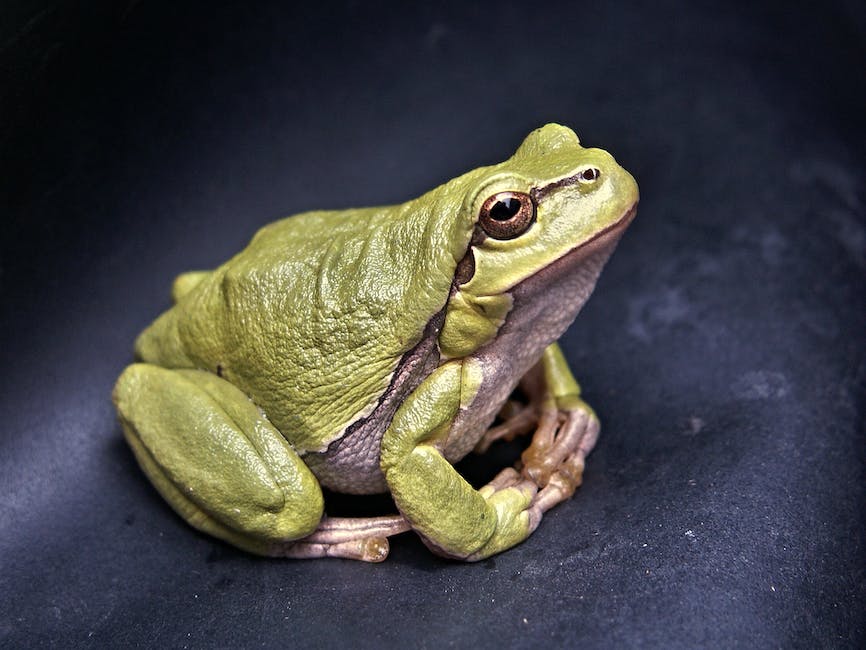From the slithering snakes to the hopping frogs, reptiles and amphibians are fascinating creatures that have been captivating humans for centuries. However, owning one of these exotic pets requires a great deal of responsibility and knowledge. Whether you’re a first-time owner or a seasoned reptile enthusiast, it’s crucial to understand the basics of reptile and amphibian care to ensure the health and happiness of your scaly friend. In this article, we’ll provide you with essential tips and tricks to help you become a pro at reptile and amphibian care 101. So, let’s dive into the world of these fascinating creatures and learn how to take care of them like a pro!
1. “From Terrariums to Temperature: The Basics of Reptile and Amphibian Care”
Reptiles and amphibians are fascinating creatures that require specific care to thrive in captivity. Whether you’re a first-time owner or an experienced enthusiast, understanding the basics of their care is essential for their health and happiness. Here are some key points to keep in mind:
– Terrariums: The enclosure you choose for your reptile or amphibian should mimic their natural habitat as closely as possible. This means providing the right substrate, temperature, humidity, and lighting. Research the specific needs of your pet to ensure they have enough space to move around and explore.
– Temperature: Reptiles and amphibians are ectothermic, which means they rely on external sources of heat to regulate their body temperature. Make sure your terrarium has a temperature gradient, with a warm side and a cool side, so your pet can move between them as needed. Use a thermometer to monitor the temperature and adjust it as necessary.
Other important factors to consider include diet, hydration, and hygiene. Reptiles and amphibians have unique nutritional needs, so make sure you’re feeding them the right type and amount of food. Provide fresh water at all times, and clean their enclosure regularly to prevent the buildup of bacteria and other harmful substances. With proper care and attention, your reptile or amphibian can live a long and healthy life in captivity.
2. “Mastering the Art of Feeding and Hydration for Your Cold-Blooded Companions”
Feeding and hydrating your cold-blooded companions can be a tricky task, but with a little bit of knowledge and practice, you can master the art of keeping them healthy and happy. Here are some tips to help you get started:
– Research the specific dietary needs of your pet: Different species of reptiles and amphibians have different dietary requirements, so it’s important to do your research and make sure you’re feeding your pet the right foods. Some common foods for cold-blooded pets include crickets, mealworms, and vegetables like kale and collard greens.
– Provide a variety of foods: Just like humans, reptiles and amphibians can get bored with the same old food every day. To keep your pet interested in their meals, try offering a variety of different foods and switching things up every once in a while. You can also try dusting their food with calcium powder to ensure they’re getting all the nutrients they need.
When it comes to hydration, there are a few things to keep in mind as well:
– Provide a water source: All cold-blooded pets need access to fresh, clean water at all times. Depending on the species, you may need to mist their enclosure or provide a shallow dish of water for them to soak in.
– Monitor humidity levels: Many reptiles and amphibians require a certain level of humidity to stay healthy. Make sure you’re monitoring the humidity levels in your pet’s enclosure and adjusting as needed to keep them comfortable.
– Watch for signs of dehydration: If your pet isn’t getting enough water, they may become dehydrated. Signs of dehydration in cold-blooded pets can include sunken eyes, lethargy, and wrinkled skin. If you notice any of these symptoms, it’s important to take action right away and provide your pet with more water.
3. “Survival Guide: How to Keep Your Reptiles and Amphibians Healthy and Happy
Reptiles and amphibians are fascinating creatures that make great pets. However, they require special care and attention to ensure they stay healthy and happy. Here are some tips on how to keep your reptiles and amphibians thriving.
Firstly, it’s important to provide a suitable habitat for your pet. This includes a tank or enclosure that is the right size for your animal, with appropriate lighting, heating, and humidity levels. You should also provide a variety of hiding spots, climbing structures, and substrate that is safe and easy to clean. Regular cleaning and maintenance of the enclosure is essential to prevent the buildup of harmful bacteria and parasites. Additionally, make sure to research the specific needs of your pet’s species and adjust their habitat accordingly.
Secondly, diet is crucial for the health of your reptile or amphibian. Different species have different dietary requirements, so it’s important to research what your pet needs. Offer a variety of foods, including live insects, vegetables, and fruits. Avoid feeding your pet wild-caught insects or rodents, as they may carry diseases or parasites. Always provide fresh, clean water and change it regularly. Finally, monitor your pet’s weight and adjust their diet as needed to ensure they are getting the right amount of nutrients.
By following these tips, you can help ensure your reptile or amphibian stays healthy and happy for years to come. Remember to always research the specific needs of your pet’s species and consult with a veterinarian if you have any concerns. With proper care and attention, your pet can thrive and bring you joy for many years. In conclusion, taking care of reptiles and amphibians may seem daunting at first, but with the right knowledge and preparation, it can be a rewarding and fulfilling experience. Remember to research the specific needs of your pet and provide them with a suitable environment, diet, and healthcare. Regular monitoring and observation can help you detect any potential issues early on and prevent them from escalating. With patience, dedication, and love, you can create a happy and healthy home for your scaly or slimy friend. Happy herping!

